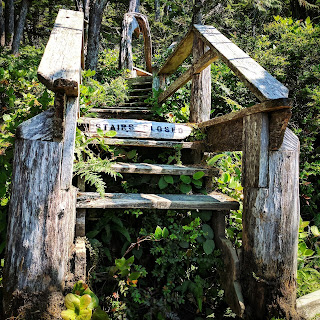I read a fun article on the Poetry Foundation site earlier this morning, comparing observational photography to poetry. Of the former, the author says, "With observational photography, emotion recollected in tranquility is only relevant if you have managed to capture it at the time. If there’s poetry, it’s often only by being quick." (Seamus Murphy, from Two and a Quarter)
Big hippie
This day was so slow
And i can see you feel it too
Sometimes you wish you knew karate
Oh, the things that you could do, like
Crossing in between the greens
Just because you want to
Not because you ought to
Oh, how can you ever explain
They can never feel your pain
Neither can you
- Fountains of Wayne, from Go HippyTo be sure, there can be a fine line between observational and less-passive, more directive forms of photography, and "quick" can also require patience while you wait for just the right quality of natural light, time of day, or alignment of naturally-occurring circumstances to capture that special poetic moment. Very similar, in fact, to finding just the right word or turn of phrase.
The solstice gable of my roof is dialing
Noonaway gardens and the flutes are gone,
The first leaf slowly flutters summer down,
Yet here, anew, causing the light to be,
The children are coming slowly up the stairs,
The leaded stained-glass window on the landing
Shattering rainbows over the bannister.
- Thomas Hornsby Ferril, from The Children Are Coming Slowly Up the StairsBecause poetry, too, has its quick moments. When a poet captures in words, however carefully selected, a specific memory-based moment in time they are no less observational than the photographer. Is it any different when the poet's words also conjure up a specific personal memory in the reader's mind? Murphy shares several quotes from Seamus Heaney's poem, Digging, to illustrate his point. Heaney is describing a specific memory from his own past, but his words perfectly capture a sound from my own past, too:
Under my window, a clean rasping soundIn observing life both the photograph and the poem can bear witness both what we see on the surface and what we feel for what we have seen.
When the spade sinks into gravelly ground:
My father, digging.
For he chases the balled up poems which I discard on the
floor and so enjoys them despite their imperfections.
For he can move each ear by itself.
For from the side I can see through his eyes like water.
For he is easy in this life.
For he carries no cash.
For he does not have any pockets.
For he saves nothing, not even a bone.
- Hunt Hawkins, from My Cat Jack
Today's Playlist:
- Tamba Trio, Moça Flor
- Antonio Carlos Jobim, Águas de Março
- Glen Campbell, The Impossible Dream
- Spamalot, The Song That Goes Like This
- India Arie, Strength Courage & Wisdom
- Anita Baker, Giving You The Best That I Got








No comments:
Post a Comment